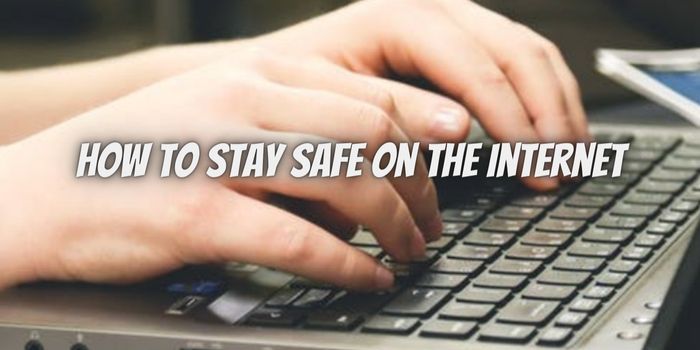How to Stay Safe on the Internet
From communication and information exchange to shopping online and entertainment, the internet plays an invaluable role in our daily lives. However, its many conveniences come with potential risks including cyber threats, identity theft, and privacy breaches being just some of those lurking online.
The good news is that you can implement several strategies to stay safe online and enjoy peace of mind while using your Xfinity Internet plans. In this comprehensive guide, we’ll explore practical steps that can ensure your internet security. Let’s dive in!
Understanding Online Threats
The internet can be a dangerous place. That’s because, malware, viruses, ransomware, and hacking attempts pose real dangers. For this reason, you must learn how to protect yourself from such online hazards.
Malware and Viruses
Malicious software, or “malware”, refers to any harmful programs intended to infiltrate and damage your computer or device. Examples include viruses, worms, Trojans, and ransomware which can compromise sensitive data while slowing down system performance or holding your files hostage.
Phishing Attacks
Phishing attacks involve cybercriminals masquerading as legitimate entities to entice users into divulging sensitive data such as passwords, credit card numbers, or personal identification numbers through deceptive emails that often contain urgent calls-to-action in an attempt to exploit trust and take advantage of vulnerable individuals.
Identity Theft
Identity theft happens when an untrustworthy third party gains unauthorized access to your personal data for malicious use, leading to financial loss, damaged credit history, or legal implications. Cybercriminals may gain entry through hacking, data breaches, or social engineering tactics.
Steps to Ensure Online Safety
To protect your digital identity and data, you should follow these steps:
Use Strong Passwords
One of the cornerstones of online security is employing strong passwords. A robust password consists of uppercase and lowercase letters, numbers, and special characters and should avoid easily guessable information like your birthday or “password123.” Regularly change and manage your passwords using a reliable password manager in order to protect them.
Implement Two-Factor Authentication
Two-factor authentication (2FA) provides your online accounts with an extra layer of protection. Even if someone obtains your password, they won’t be able to gain entry without first verifying your second verification step – usually sent as a text message or email notification.
Update Your Software
Staying current with updates of operating systems, browsers, and apps is of utmost importance to protect against security vulnerabilities that developers release updates for. Doing this ensures you remain protected against known threats.
Be Wary of Suspicious Links
Clicking on dubious links may lead to malware infections or phishing attacks, so before clicking, hover your cursor over each link to see where it leads. Only open links from reliable sources, and if any message or email seems questionable, verify its authenticity first before taking any steps in response to it.
Avoid Public Wi-Fi Networks
Public Wi-Fi networks can often be unprotected, making it easy for hackers to intercept your data. When conducting sensitive activities online, like banking, while using public Wi-Fi networks, consider using a virtual private network (VPN). If this is unavoidable, consider employing encryption such as with a virtual private network (VPN).
Prioritize Secure Websites (HTTPS)
When browsing or sharing information online, prioritize websites displaying “HTTPS” in their URL. This indicates that this website utilizes encryption technology to secure data transmission between your device and server – making it harder for attackers to intercept.
Be Wary of Phishing Emails
Phishing emails are designed to trick users into divulging personal data. Be wary when opening emails from unknown senders and refrain from clicking links or downloading attachments that seem dubious until you can be certain of their authenticity.
Regularly Back Up Data
Data loss can occur for various reasons, including cyber incidents. To protect against the possibility of data loss in case of a cyber-attack or ransomware attack, back up all important files and documents regularly on an external storage device or secure cloud service. This way, your files remain accessible even in an attack scenario.
Install Antivirus Software
Antivirus software helps detect and remove malware from your devices. Staying up-to-date will provide protection from new threats.
Educate Yourself and Your Family
Online safety education should be prioritized at home for everyone in your family, especially children. Initiate open discussions among family members regarding potential threats online as well as sharing experiences to learn from each other’s mistakes.
Be Careful on Social Media
Misuse of social media can expose you to identity theft, scams, and other cybercrimes. Avoid disclosing sensitive personal data like your full birthdate, home address, or financial details as this puts you at risk of identity theft and cybercriminal activities.
Secure Your Home Network
Be sure to set a strong password and change it frequently on your Wi-Fi network at home, as well as consider network encryption methods like WPA3 for added protection from outsiders gaining entry.
Final Thoughts
Our lives are increasingly interconnected through the internet, making prioritizing online safety essential. By following these practices and remaining vigilant, you can significantly lower the risks associated with using it. Remember, being proactive about online security not only protects yourself but also contributes to creating a safer online environment for everyone.














Post Comment
You must be logged in to post a comment.